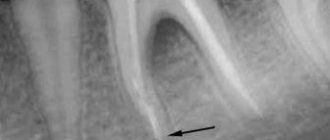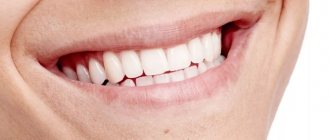Sleep is associated with a state of rest. However, at night people often make a variety of sounds that do not fit this definition at all. They can slurp in their sleep, grind their teeth and even talk. While the sleeper is resting, people around him may experience serious discomfort. Situations become aggravated when you have to stay in the same room for a certain period, such as the whole night.
One part of doctors explains this behavior by the characteristics of the body, while the other considers chewing in sleep a bad habit. Why does a person slurp in his sleep, is it possible to get rid of unpleasant sounds - this is worth understanding in more detail.
Chomping
When a person slurps while sleeping, this does not mean that he is dreaming of delicious food.
Rather, the cause of slurping will be sleeping with your mouth open, which is why the mucous membrane dries out, and the person has to make such movements to moisten it. Infants also smack their lips quite often in their sleep. They really dream that they are sucking their mother’s delicious breast or trying to do so.
Scientists explain smacking in adulthood by the fact that genetic memory takes us back to carefree infancy, when a caring mother was nearby.
What is the difference between nocturnal epileptic seizures and parasomnias?
- parasomnias often occur in early childhood (from 1-3 years to 12 years), and nocturnal epileptic seizures develop later and can begin at any age;
- parasomnias are longer lasting (on average duration is 5-30 minutes) compared to nocturnal epileptic attacks (on average duration is 20 seconds - 5 minutes);
- parasomnias are more variable, epileptic seizures during sleep are more stereotypical (similar to each other);
- parasomnias gradually cease on their own or with sedative therapy by the age of 12; epileptic seizures during sleep respond only to antiepileptic therapy;
- After parasomnias, daytime drowsiness is rarely observed, and after a night attack of epilepsy, lethargy, drowsiness, and “weakness.”
Why does a person make sounds in his sleep?
Newborn babies sleep a lot - this is no secret. Up to 3 months, a child should normally sleep at least hours a day. The duration and periods of alternation between sleep and wakefulness may be different, but the total amount of sleep should not be less than prescribed - this is the key to the growth and proper development of the baby. The thing is that it is during sleep that somatotropin, the growth hormone, is produced, so it is not for nothing that they say that children grow in their sleep. In addition, healthy sleep, with the correct alternation of superficial and deep phases, is necessary for the harmonious development of the brain. Knowing these facts, many parents begin to worry when their newborn baby does not sleep well: twitches in his sleep, smacks his lips or makes faces.
Sometimes parents begin to notice that the child laughs in his sleep. Is this related to the manifestation of some mental disorder? Children always behave differently. Some show positive emotions, others negative.
Reason for smacking in sleep
Very often, small children smack their lips in their sleep. This is due to the fact that they intuitively look for their mother's breasts when they dream about themselves sucking milk. In adulthood, smacking can be explained by genetic memory, which during sleep returns a person to a carefree childhood, when mother was always nearby and protected from all troubles.
Moaning in a dream is a reflection of problems
The constant activity of the brain and its ability to store information gives rise to dreams that reflect problems with health and life situations. They are sometimes so strong that they force a person to make sounds in his sleep. This can be triggered by emotional stress, mental disorders, drug or alcohol addiction, high body temperature and medications.
Why does a person moan in a dream? Surveys have shown that moaning accompanies dreams in which a person is being strangled and lacking air. There are two versions of nightmares:
- a warning from higher powers about something bad;
- oxygen starvation or cardiovascular diseases.
To believe or not in higher powers is a personal matter for everyone. But it would be a good idea to see a doctor if you are choking and moaning too often in your sleep.
Mooing and howling - the result of nightmares
Disruption of any phase of sleep can lead to sleep paralysis. This is a condition in which the entire body goes numb. The vocal cords are constrained and, apart from an indistinct sound, the sleeper cannot utter a single word. This is why a person hums in his sleep.
Some cultures and religions explain why people howl in their sleep. This is attributed to reincarnation or demonic possession. This may be true, but it is better to pay attention to your lifestyle, avoid stressful situations, and eliminate alcohol and psychotropic substances.
Chewing
In medical language there is a term - bruxism, which means chewing, as well as grinding teeth in sleep.
According to popular belief, this indicates that the person has worms. Amazingly, most people believe this, even though it is not true.
Bruxism affects both children and adults.
In a dream, a person, of course, will not chew exactly as he does in a conscious state. A sleepy person makes low-frequency sounds similar to clicking or grinding. This usually lasts no longer than a few seconds. If the duration of jaw movements increases, this threatens damage to the teeth and soft tissues of the oral cavity.
When a person chews in a dream, changes occur in the body: pulse and breathing quicken, blood pressure changes.
Sucking reflex
Smacking can be caused by various reasons. If this is an infant, then this may be due to the so-called “sucking reflex.” The baby has a need to suck. Even when well-fed, the baby smacks his lips.
These sucking movements seem to calm and relax him. Busy sucking, the baby quickly falls asleep. Smacking your lips in a dream is not a pathology or any deviation. This is how an overexcited baby relieves stress.
A bath with lavender before bed, chamomile infusion and mother's stroking will help the baby feel more comfortable and protected. During the day, a little person usually experiences a ton of emotions and needs to calm down.
Smacking your lips in a dream is a manifestation of a kind of self-defense. When he eats, he calms down. So the baby’s body imitates “feeding” in a dream.
Conditioned reflexes in babies from 3 months of age
By the third month of a baby’s life, in addition to the innate reflexes (sucking, swallowing), conditioned ones are added, which appear as a result of the child’s adaptation to the surrounding conditions. So, for example, if you put the baby in the usual feeding position, he may smack his lips.
Everyone also knows that sleep has 2 phases - “fast”, during which we adults dream, and “slow” - sleep without dreams. In infants, the first type of sleep predominates: babies smack their lips, as if they were sucking their mother’s breast in their sleep.
Reasons related to feeding your baby
Many young mothers are concerned about the question: is there enough milk for the baby? In fact, determining this is not so difficult. You just need to follow the signals that the baby himself gives. Early signs that your baby is hungry look like this:
- baby opens and closes mouth
- sticks out tongue;
- smacks lips;
- looking for breasts;
- turning the head.
Why does a baby smack when feeding:
- strong flow of milk;
- incorrect chest grip.
It is necessary to observe the baby and make sure that he is suckling correctly. If there are no problems with this, and the baby grasps the entire nipple and areola, then the cause may be during strong hot flashes, when the baby simply does not have time to suck.
We recommend reading: The main causes of insomnia in women, what causes the condition after 50 years, treatment methods and remedies
Correct application. To prevent the baby from smacking while sucking, his mouth should be wide open, completely grasping the nipple and approximately 80% of the areola. The lips should be relaxed and slightly turned out, the cheeks should be slightly puffed out, and the rhythm of breast sucking can be seen from them. If you look closely, you will see that the tongue completely encircles the areola at the bottom.
In the case when only the edge of the nipple is sucked, you need to remove the breast from him and offer him again. Proper breastfeeding is necessary not only so that the baby stops clicking, but also so that feeding is painless for the mother, and the baby develops a correct bite. Incorrect attachment can cause cracked nipples.
Strong lactation. If a baby smacks his lips while breastfeeding, even if the attachment was correct, this may indicate that he does not have time to swallow milk due to a rapid flow.
This happens in the first months after birth, when the lactation process has not yet normalized. To prevent the baby from choking while feeding, the mother needs to express a little milk.
Eliminating the cause is as follows: you need to establish the process of breastfeeding the baby and lactation.
Is it dangerous for a newborn to moan during sleep?
It's not uncommon for babies to moan in their sleep. Mothers begin to worry that these are health problems. Before such frightening thoughts, it is better to thoroughly understand why the baby moans in his sleep. You need to start with the signs of restless sleep:
Most of all, young mothers are frightened by incomprehensible sounds, and completely in vain. Most often they do not pose any threat. But you shouldn’t ignore them when the mother’s heart is restless.
The new world evokes even in a baby a sea of emotions, which he continues to experience in his sleep and groan because of it. If the child is active and calm while awake, then his moaning in his sleep is not dangerous.
But if a breastfeeding baby is lethargic during the day and begins to moan during sleep, then he needs to be shown to a doctor to make sure he is in good health.
The first time after birth, the toddler goes to sleep when he gets tired. It's hard to put him to sleep against his will. And if this happens, then a quiet rest is a rarity. It is also important that feeding should be frequent, approximately every 2 hours, for some a little longer. Therefore, the baby will often wake up, and this is a completely natural phenomenon.
Young parents mistakenly believe that the baby should sleep all night, and this rest should be calm and sound. In fact, the baby spends about 5 hours on this. Afterwards, he begins to groan and demand food. You shouldn’t forcefully wake him up to feed him; let him wake up on his own and want to eat. It is normal for a newborn to make noise while sleeping.
The behavior of newborns during a night's rest is a reflection of their well-being, as well as their emotional state. The baby sleeps up to 20 hours a day. Sometimes in a dream, children can smile and even laugh. This is not surprising, because even in a state of rest, a person’s memory recalls everything that happened to him while he was awake.
The bright emotions of a baby can easily be explained by an incompletely formed nervous system. His impressions and experiences will always be alive and new. As you grow older, your attitude towards the surrounding reality becomes calmer. To understand why newborns smile in their sleep, you need to familiarize yourself with its key features.
Why do older children smack their lips?
If the child is older, this may be due to psychological reasons. The child’s psyche is still fragile and very vulnerable. Various experiences, stressful situations, changes in environment - all this affects the child’s behavior.
The baby may kick his legs all night, roll over from side to side, talk in his sleep and smack his lips. It is imperative to observe how the child’s day goes during the day, and whether he is overexcited. This often happens when a child just starts going to kindergarten and adaptation is underway.
Even the cancellation of sleep during the day is also a moment for worry.
But there are other reasons why such night sounds can occur. Sometimes the reason lies in the wrong bite. In a child who is sleeping, the muscles are in a relaxed state and the jaw may sink slightly and smacking sounds may be heard. This is not a disease and can be easily eliminated at an early stage.
And another reason may be problems with the gastrointestinal tract, when when bile is thrown into the esophagus, there may be a reflex swallowing, while the child smacks his lips. In this case, you need to contact medical specialists. The most correct thing in this situation is a comprehensive examination of the baby by a psychologist or gastroenterologist.
Other sounds made by a sleeping person
A person may also moan in a dream. It is believed that the sleeper is suffering greatly or is dreaming that he is being strangled and lacking air. And this already refers to nightmares.
It is believed that higher powers warn with this dream about something bad that will happen to you in the future.
It is your right to believe or not in a higher power, but if you moan or suffocate very often in your sleep, you need to consult a specialist.
Norm or pathology
It is important to distinguish between physiological manifestations and deviations from the norm. Grunting often accompanies the process of defecation. The baby simply gets used to the new conditions and accompanies bowel movements with characteristic sounds.
If there are no other signs, there is no need to worry: the baby is simply expressing a reaction to the process. The newborn, in his “language,” reports discomfort caused by feces.
Important! If one or more signs are detected in combination with the fact that the newborn groans in his sleep, a visit to the pediatrician is required. The doctor will examine the baby, determine how long the symptoms have been noticeable, and prescribe tests. Do not delay an unscheduled visit to the doctor: in some cases (intestinal infections) serious treatment is required.
Symptoms of laryngopharyngeal reflux
- Dysphonia or hoarseness;
- cough;
- feeling of a lump in the throat;
- discomfort and feeling of mucus in the throat;
- dysphagia (impaired swallowing).
Some researchers believe that chronic irritation of the larynx may lead to the development of carcinoma in patients who do not drink alcohol or smoke, although there is no data to support this.
Symptoms characteristic of LPR may also be caused by the following conditions:
- postnasal drip;
- allergic rhinitis;
- vasomotor rhinitis;
- upper respiratory tract infections;
- habitual coughing;
- use of tobacco or alcohol;
- excessive use of voice;
- changes in temperature or climate;
- emotional problems;
- environmental irritants;
- vagal neuropathy.
Causes
In truth, slurping is a fairly common occurrence. Those who are susceptible to this disease may chew and grind their teeth many times during the night. Medicine cannot yet reliably answer the question of why this phenomenon occurs. This does not entail any personal changes.
Doctors associate this with sleep disorders such as sleepwalking, enuresis, snoring, and nightmares. As for worms, those suffering from bruxism do not get them more often than other people.
This phenomenon is sometimes considered a bad habit, which is easy to break with willpower. But the fact that chomping, chewing and grinding of teeth occurs during sleep, i.e. reflexively, indicates that willpower alone is not enough.
We recommend reading: Valerian drops: instructions for use - how much to drink to calm an adult
Uncomfortable body position during sleep
The cause of unnatural sounds during sleep can also be the discomfort experienced by a person due to a poor mattress or pillow. Find out how to choose the right mattress for your bed and how to choose a pillow.
Inability to recognize and express one's emotional state
How often have you heard from a girl that her lover is not sincere enough with her? “He never shares his experiences with me.” “He’s somehow always aloof...” “He doesn’t care at all what’s going on in my soul!” And so on.
Believe it or not, two out of three of these complaints can be explained by a medical phenomenon called alexithymia. This term refers to a person’s inability to recognize and express in words their own emotional state. Each of us has Alexithymia to one degree or another. However, in the most severe cases, this condition can seriously poison life. According to scientists, alexithymia interferes with the lives of approximately 8-10 percent of all people, and among them there are more men than women.
In addition to problems with girlfriends, such men have an underdeveloped imagination. People suffering from alexithymia even have dreams that are logical and realistic: about them going shopping, for example, or having scrambled eggs for breakfast.
Scientists' opinion
Scientists have come to the conclusion that the appearance of strange sounds during a person’s night rest is a reflection of the emotional background during the waking period. A person who goes to bed with negative emotions closes their jaws tightly, which can lead to pathological sounds in their sleep.
However, it was discovered that in completely healthy people without stress and troubles in life, such phenomena as bruxism, slurping or smacking in their sleep can also occur.
Danger of the phenomenon
If a person does not sleep alone, he faces the minimum risk of being left alone for the night, and the maximum risk of being left alone for the rest of his life. But if optimists even find advantages in solitude, it will be difficult to come to terms with the physiological consequences:
- feeling tired in the morning;
- headache;
- pain in the jaw muscles;
- damaged tooth enamel;
- biting your tongue in your sleep;
- daytime sleepiness.
With bruxism, dental problems become most urgent if the teeth are weakened by caries, the enamel is damaged by cracks, and there is a history of diseases of the gums and the inner membranes of the teeth - periodontitis, pulpitis. Tooth enamel is worn away by jaw movements. They cause damaged teeth to become loose and may break. Implants and veneers will not solve the problem - dentists warn that they will also wear off.
Medical rationale
When a child slurps in his sleep, it seems that he was not fed before being put to bed. There are several explanations for the origin of the sounds made:
Experts do not associate such phenomena with a lack of diet or pleasant dreams about tasty food. Often, smacking your lips in a dream is due to the fact that the sleeper's mouth is slightly open. With this type of breathing, the mucous membranes dry out. Reflexively, slurping movements are made to moisten the surface of the oral cavity. Also, a provoking factor may be congestion or a crooked nasal septum, which forces the sleeper to breathe through the mouth.
- When it comes to babies, most professionals agree that newborns intuitively seek out their mother's breast. After all, it is not just a source of nutrition for babies, but also a prerequisite for harmonious development.
- Chomping sounds and grinding of teeth during sleep are called bruxism by doctors. It is noted as a result of reflex muscle contraction. The sounds produced are short-term in nature. Unlike snoring, they stop without additional external influence.
Scientists have found that the autonomic system responds to slurping movements. During the next episode, the sleeper’s blood pressure rises and the pulse quickens.
Tags
loud snoring and loud snoring and loud snoring disrupts loud snoring and the process of snoring is people snoring cases snoring occurs snoring from snoring suffer that snoring does not tell the doctor. Doctors tie their teeth, doctors in general, to the doctor and the child to the doctor. If the doctor sees, smack your lips. Doctors consider Doctors Doctors Doctors consider a disease. During the next
doctorsconsultationinformationpricesserviceschildrendiagnosticsspecialistsanalysesmuscleclinicsexaminationhoursreviewsappointmentprogramspsychologistcenterpromotionsultrasoundsurgeryendocrinologycostgastroenterologistEEGMR
Is treatment possible?
Bruxism is not classified as a serious pathology, so it will not be possible to find out or find a specific recipe that would help get rid of various night sounds. The only negative side of this peculiarity of sleep is the discomfort of loved ones, whom the night slurping can wake up.
Doctors offer general recommendations to solve the problem:
- avoid severe stress;
- do yoga;
- do relaxing exercises before bed;
- ventilate the bedroom;
- take evening walks;
- choose a comfortable bed;
- Take a warm, relaxing bath in the evening.
When a problem causes concern and you can’t cope on your own, you should turn to professionals. Among the doctors it is worth noting a neurologist and a psychologist. The first will help strengthen the nervous system in general, the second will work with specific situations that the subconscious may be storing.
What should the mother do and how to help the child?
You can help your child cope with teeth grinding at home. The task of parents is to relax the child, especially in the evening. Suitable for relieving tension:
- massage;
- exercise therapy;
- correct daily routine;
- walks in the open air;
- drinking enough water;
- exclusion from the diet of foods that excite the nervous system: chocolate, coffee, tea, Coca-Cola, Pepsi, etc.;
- last meal – an hour before bedtime;
- hot bath before bed;
- refusal of active games, quiet activities in the evening: drawing, listening to lullabies, etc.
In addition, heart-to-heart conversations with your child can help. If the child does not speak out, he will go to bed with anxious thoughts. This will trigger an attack.
The following techniques will help reduce facial muscle tension:
- heat compresses (including for pain in the morning);
- chewing solid food;
- giving up chewing gum.
Treatment
There are no exact recipes for treating this disease. It all depends on the age at which symptoms appeared and how they manifest themselves. Doctors do not consider short-term chewing movements and grinding of teeth to be a disease at all. Such manifestations are also typical of completely healthy people experiencing positive emotions.
Dentists do not recommend dental implantation or veneers for people suffering from bruxism, because involuntary jaw movements during sleep damage tooth enamel and can even crumble teeth.
This problem causes inconvenience not only to those who are nearby, but also to the person himself. The patient may wake up several times a night from his own teeth grinding, and this is also fraught with problems with the jaw joints.
- The most important condition for treatment is maintaining calm, the ability to relax and throw problems out of your head before going to bed.
- Before going to bed, you can try applying a warm, relaxing compress to your face, taking a bath, or listening to calm music.
- If you don’t know how to relieve stress on your own, try contacting a psychologist.
- If tooth enamel is damaged, the dentist can make a special mouth guard that you will have to wear at night. It will protect your teeth, but will not eliminate the cause.
- If chewing, slurping, or grinding your teeth while sleeping is causing trouble for you and those around you, consult a doctor and they will find treatment for you.
Doctors advise contacting a neurologist, because a mental disorder is usually to blame for the appearance of this pathology. You should also visit your dentist to examine your mouth and determine if there is any damage to your tooth enamel. Do not neglect professional medical help. Source:
Complications of bruxism
If the disease is observed for a long time, pathological abrasion of the tooth enamel, increased sensitivity of the enamel, and the appearance of a wedge-shaped defect, cracks and chips may develop. Constant trauma to the periodontal tissues can lead to periodontitis, loosening and loss of teeth. The service life of fillings and orthopedic structures (prostheses) in patients with bruxism is shorter due to high mechanical load.
The consequence of the disease can be dysfunction of the temporomandibular joint, accompanied by pain in the jaw and neck, hypertrophy of the masticatory muscles.
Frequent injuries to the soft tissues of the oral cavity can lead to inflammatory diseases: gingivitis, periodontitis, stomatitis.
Pathological closing of the jaws during sleep complicates orthopedic and orthodontic treatment. Many dental restoration methods may not be available to patients, so it is important to pay attention to the disease in order to be able to receive comprehensive care in case of dental diseases or tooth loss.
If slurping annoys you, psychiatrists have a separate term for it.
Have you ever noticed that you are incredibly irritated by people who chew gum? Or loudly sipping tea? Or snacking on an apple with gusto? If this is the case, do not rush to blame others for lack of culture. You may have misophonia, a disease whose name can literally be translated as “hatred of sounds.”
The term "misophonia" was coined in 2001 by American neuroscientists Pavel and Margaret Yastrebov to refer to a neurological disorder that is characterized by a person's extremely negative reaction to certain sounds, such as slurping, smacking lips, squelching, clicking a pen or tapping a keyboard. After hearing something from the list above, people suffering from misophonia experience anger, irritation, and even uncontrollable rage. And the thoughts running through their head change from “Is he doing this on purpose?!” to “I’ll kill him now!”
We recommend reading: Sleepwalking in adults after alcohol
In addition to emotional manifestations, misophonia also has quite obvious physical symptoms. People with this diagnosis may feel pressure in the head and chest, muscle tension, and increased heart rate. For some misophonics, irritating sounds cause an increase in body temperature, others sweat, gasp, and even feel pain similar to the pain of bee stings.
If you recognize yourself in the description of the symptoms of misophonia, do not be discouraged. Research conducted at Northwestern Illinois University found that increased sensitivity to sound may be a sign of creative thinking. In an experiment conducted by university specialists, in which 97 people took part, it turned out that the ability to filter sound signals in creative individuals is much less developed than in average people.
100% effective treatments for misophonia have not yet been developed, but various relaxation exercises and cognitive behavioral therapy are currently used to alleviate the symptoms: patients are taught to deal with the negative reaction that irritating sounds cause in them. In some cases, patients may be prescribed antidepressants and drugs that reduce anxiety.
Frequently asked questions and answers
- The child clicks in his sleep, reasons? There are several reasons. This could be worms, lack of fresh air in the room, lack of vitamins, etc. If the clicking noise repeats frequently, you should show the child to a doctor. You should also check with relatives whether there were similar problems with any of the family members. Sometimes the reason is a violation of physical or mental health. In this case, self-medication or the use of “grandmother’s remedies” can only harm the baby. A medical examination is necessary. Check the level of hemoglobin, potassium, vitamins, blood density.
- A child makes strange sounds in his sleep, why? Parents often believe that when a child makes strange, incomprehensible sounds in a dream, these are signs of some kind of disease or developmental disorder. But it should be remembered that every person goes through several stages of dreaming, from dozing to REM sleep. The child may have dreams. Sometimes this is a consequence of the impressions experienced during the day, especially if he played a lot or was in a crowded place. Often sounds in dreams are an expression of emotions. If the doctor sees symptoms such as stomach upset, problems with bowel movements, abdominal or chest pain, he should prescribe appropriate treatment. But in this case, after examination and following the doctor’s instructions, the child sleeps normally. Often, sounds in a dream are signs of sleep talk. This phenomenon often goes away during adulthood.
- Why does a person slurp when he eats? In some countries, slurping while eating is a way to express pleasure in the process of eating food. But civilized, well-mannered people must observe the rules of behavior at the table. If a person has been taught the rules, told how to eat, and he continues to behave as he is used to, he often simply ignores those around him or deliberately displeases them. Psychologists regard this behavior as a sign of disorder. But sometimes the reasons lie in diseases - deafness, shortness of breath, jaw injuries and even malocclusion. There may be a dental problem where food gets stuck in rotten, holey or crumbled teeth. Chomping may be a sign of a disease of the nasopharynx, for example, chronic rhinitis or sinusitis. In any case, you can get rid of this problem. You just have to control yourself while eating.
- Why does a child click his tongue in his sleep? If the parents examined the child in the hospital for the presence of worms, they received a negative result, but the child continues to click his tongue, perhaps the reason is psychological. For example, a baby is just being weaned off the breast or pacifier. In his sleep he looks for the breast, clicks his tongue as if he is drinking milk. Over time, this symptom will go away. The child may simply dream about something. This is a kind of emotional release.
- When I fall asleep, I make sounds, why? As a rule, when falling asleep, the body relaxes, and the brain gets freedom. Emotions, stress, experiences experienced throughout the day come out in a dream. A person can talk, laugh, mumble, even swear with someone. This is not a sign of illness. Perhaps stress at work or the consequences of a quarrel come out through sleep. A person may have colorful dreams, nightmares, or he may be very tired at work and solve production problems even in his sleep. With the exception of somnambulism or a sleep disorder, sounds while falling asleep are a normal process.
- A child smacks in his sleep for 7 years, why? The child smacks unconsciously. The reasons may be strong emotions while awake, rebooting the body, relaxation, a pleasant dream (for example, dreaming about eating), the process of immersion in stage 1 or 2 of sleep. This is how the body gets rid of the consequences of being awake and recovers. Even adults can smack their lips. Doctors consider this behavior quite acceptable.
- The child smacks his lips in his sleep, what are the reasons? When the mother weans the baby from the breast, she notices that he begins to smack his lips in his sleep. Subconsciously, the child looks for his mother's breast or dreams of drinking her milk. This also happens during weaning from the pacifier. When an older child smacks his lips in his sleep, perhaps his sleep is just in the slow stage. He completely relaxes and rests. Impressions of the day come out during sleep. There's no need to panic. To reassure you, you can undergo an examination by a therapist, neurologist or family doctor, and take the appropriate tests. But if the body and development are normal, and the child still smacks, he is simply sleeping well after an active day. Or he has interesting dreams.
Sources
- https://EvriKak.ru/info/chavkane-i-zhevanie-vo-sne-prichinyi-i-lechenie/
- https://em-dv.ru/k/pochemu-rebenok-chmokaet-vo-sne.html
- https://DobryjSon.ru/newest/pocemu-celovek-cavkaet-vo-sne.html
- https://snovedeniya.ru/r/pochemu-rebenok-chmokaet-vo-sne-sonnik.html
- https://vyspalsa.ru/pochemu-chelovek-izdaet-zvuki-vo-sne/
- https://tvoisondo.ru/pochemu-rebenok-chmokaet-vo-sne.html
- https://anatomiyado.ru/chavkane-vo-sne-prichiny-spyashhij-chavkaet-chmokaet-zhuet-vo-sne-prichiny-vozmozhnosti-lecheniya-sonnik-sem.html
- https://PsySon.ru/bolezni-sna/chavkaet-vo-sne.html
- https://sonzdorov.com/bolezni-sna/chavkaet-vo-sne.html
- https://mmesyats.ru/chavkat-vo-sne/
[collapse]









